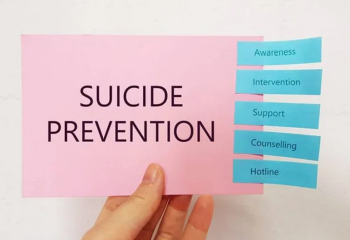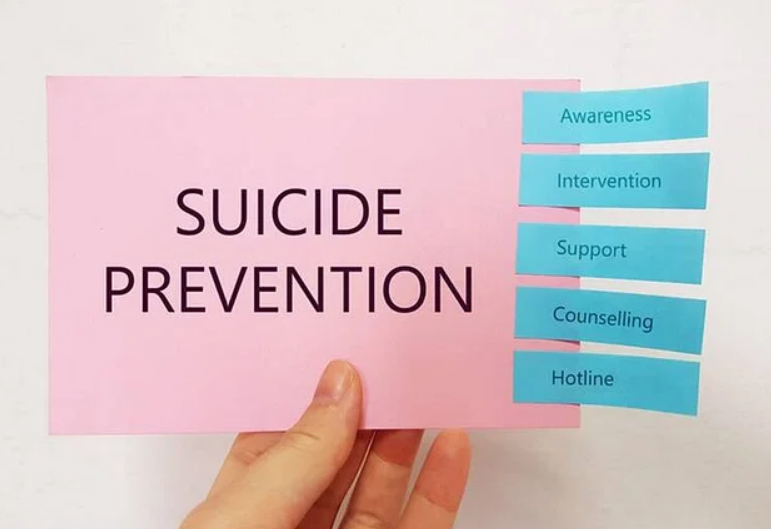
.png) Aarti
Aarti

The spate of student suicides in Rajasthan’s Kota, reportedly the highest this year since records began to be compiled, has caught the attention of President Droupadi Murmu, who recently expressed concern over the “very serious issue” during a function at Raipur. She urged the family members, friends, teachers and society to understand the mentality of children and help them. If there is pressure of studies and competition on the children, all the stakeholders should remove that pressure with positive thinking and help them in moving ahead with confidence.
Hopefully those in higher echelons of power will work out a more nuanced strategy to save lives.
The cause for concern is that 23 young lives have ended rather prematurely in Kota up to August this year while preparing for medical and engineering entrance tests. The local administration has since directed the coaching institutes to suspend routine tests in respect of National Eligibility cum Entrance Test (NEET), Joint Entrance Exam (JEE) and other competitive exams for the next two months. Psychological tests of students are to be conducted every fortnight, ostensibly to ascertain signs of stress-related behavioural change in order to provide timely counselling.
The State Government has also formed a high-powered committee which, among others, will assess the ground situation in Kota.
With a dream to gain entry to the prestigious Indian Institutes of Technology and medical colleges, reports seem to suggest that over 1.65 lakh migrant students go over to Kota every year and get enrolled in over 40 big and small coaching centres in the hope of a secure future. Kota, apparently thrives on the student-driven economy and it is said that there are about 4,000 registered and unregistered hostels apart from nearly 5,000 paying guest accommodations.
Full-time classes are conducted for students from class 9 onwards till class 12 which commence from 6:20 am up to 2 pm with some classes again in the evening. The coaching centres charge around Rs 1.35 lakh towards fees on an average for a year’s course and the big ones have an annual turnover of crores of rupees.
About 50,000 students appear for various engineering and medical exams from Kota every year and on the flip side it is claimed that one out of four candidates studying here gets selected for counselling.
On the other side, several students who have enrolled in Kota’s high-pressure test-prep business for various reasons including parental compulsions, seem to resort to suicide unable to score good marks in internal tests. There are allegations that many coaching centres cover the syllabus at rapid speed and should someone be left behind, for reasons whatsoever, it becomes very hard to catch up. There have been reported instances where suicide notes found in the room of the deceased have clearly stated, “Before coming to Kota, I did not know that preparing for JEE would be so tough.” There are others who leave no suicide note while ending their lives.
Not long ago the Rajasthan High Court had intervened in the matter. The local administration directed coaching centres to provide a mandatory one-day break in a week apart from psychiatric consultations to de-stress the students, and compulsory career counselling to each student along with parents prior to admission. Other measures like reducing the syllabus, sending students who perform poorly in internal tests to counsellors are said to be in place.
To prevent suicide of students by hanging from ceiling fans in their hostels and PG rooms, the Kota district administration has strictly ordered the owners of these accommodations to ensure that all fans are equipped with spring devices that act as an anti-suicide tool. Besides, 'anti-suicide nets' have to be installed on balconies and lobbies.
But there are no easy answers. Globally, according to World Health Organisation reports, suicide is the second leading cause of death among 15-29-year-olds and also the second leading cause of death for females aged 15-19 years. In India, more than one lakh lives are lost every year to suicide. Notably, during the past three years, the suicide rate in the country has increased from 10.2 to 11.3 per 1,00,000 population.
According to the National Crime Records Bureau (NCRB) data, Maharashtra, Tamil Nadu, Madhya Pradesh, West Bengal and Karnataka have the highest percentage share of suicides (2018-20), ranging between 8 percent and 11 percent. The most common reasons for suicide include family problems and illnesses, which account for 34 percent and 18 percent of all suicide-related deaths. In approximately 10 percent of cases, the cause for suicide remains unknown.
In so far as student suicides are concerned, around 13,000 students died by suicide in 2021. Maharashtra recorded the maximum number of suicides with 1,834 deaths, followed by Madhya Pradesh (1,308), Tamil Nadu (1,246), Karnataka (855), Odisha (834) and Rajasthan (633).
Last year the Union Ministry of Health and Family Welfare came out with the National Suicide Prevention Strategy which broadly seeks to establish effective surveillance mechanisms for suicide within the next three years, establish psychiatric outpatient departments that will provide suicide prevention services through the District Mental Health Programme in all districts within the next five years, and to integrate a mental well-being curriculum in all educational institutions within the next eight years. It envisages developing guidelines for responsible media reporting of suicides and restricting access to means of suicide.
It needs to be appreciated that education shapes our physical and mental health. Well, undoubtedly, better grades for students means better life choices. But it also needs to be realised that every individual is unique. Apart from various measures that are likely to be put in place to prevent suicides by students, an important measure that merits consideration is regular counselling for students as well as their parents.
One of our family friends had “decided” when their son was born that he would become a doctor. He was admitted to one of best schools in the City. His afterschool hours were quite hectic. Five days a week the boy was made to attend Biology tuition from class 7 but his grade at school showed no improvement. It so happened that when he was in class 9, the boy had to remain absent from school following ill health during which the school had organised a counselling session to make students aware of the different courses that were available after class X. The father who attended the same was literally bewildered. He found that there were several career options available which he had not known earlier. To cut the story short, the doctor option was dropped and now the young man is pursuing a career in printing technology, which he is enjoying.